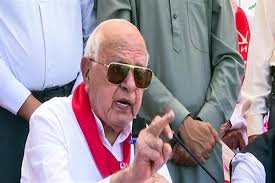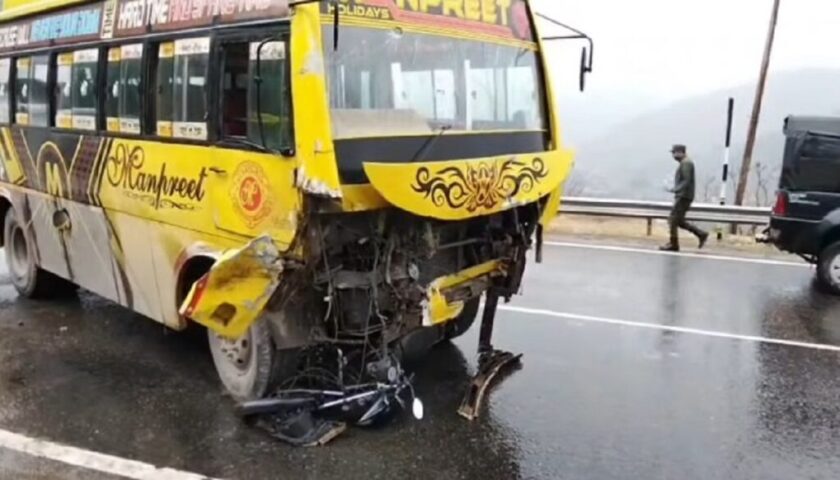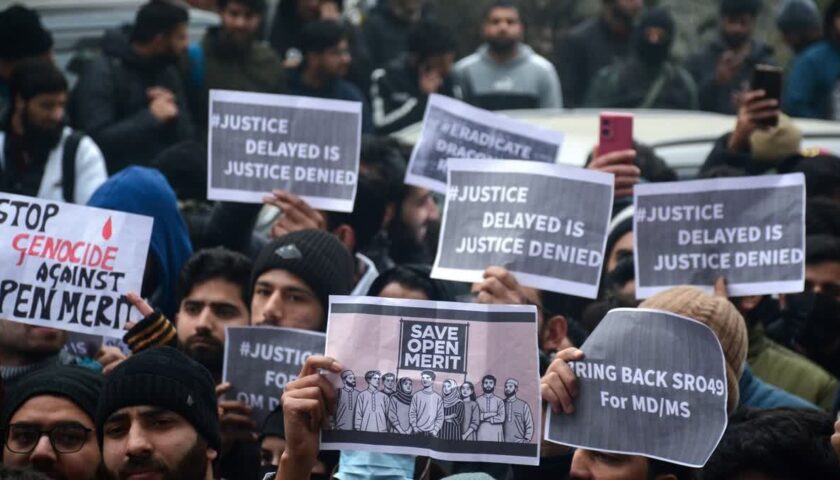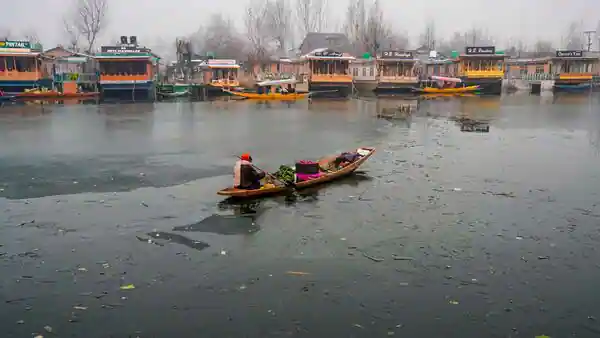Kokernag, June 21 – In a sharp escalation of rhetoric, National Conference (NC) patron and former Jammu & Kashmir Chief Minister Farooq Abdullah has issued a stern warning to the central government, declaring that his party will approach the Supreme Court if there is any further delay in the restoration of statehood to Jammu and Kashmir.
Speaking at a workers’ convention in Kokernag, Abdullah underscored the urgency of reinstating statehood, describing it as a constitutional entitlement, not a political favour. He said the absence of full statehood is not only stifling governance but also dashing public expectations, including the appointment of ministers and regional representatives like Altaf Ahmad Kaloo.
“How can we talk about appointing ministers or fulfilling people’s aspirations when we don’t even have a government of our own?” Abdullah asked. “Statehood is not a gift. It is our right, and we will reclaim it—peacefully, democratically, and if necessary, legally.”
NC to Move Supreme Court if Delay Persists
Abdullah emphasized that while the National Conference continues to respect constitutional means and peaceful political struggle, it is also prepared to pursue legal avenues if the Centre continues to stall.
“We are running out of patience. If the government thinks we’ll wait forever, they are mistaken. We will not hesitate to move the Supreme Court to fight for our rights,” he said.
The comments come amid growing frustration in the region over the lack of elected governance since the abrogation of Article 370 in August 2019, when Jammu and Kashmir was downgraded from a state to a Union Territory (UT).
“No Ministers Without Statehood”
Abdullah’s reference to former Pahalgam legislator Altaf Kaloo highlights how local political aspirations remain in limbo. Kaloo, a prominent NC leader, is often seen as a strong contender for a ministerial role—a possibility Abdullah suggested cannot materialize until constitutional powers are restored to J&K.
“You ask me, why isn’t Altaf Kaloo a minister? I ask you, how can he be, when there is no ministry?” he remarked, drawing applause from party workers.
Pahalgam Attack: “Where Did Those Militants Come From?”
Touching upon the recent terror attack in Pahalgam, which killed several civilians and security personnel, Abdullah launched a scathing critique of the Centre’s “militancy-free” narrative.
“The government says militancy is finished. Then where did those four attackers come from? How could they infiltrate despite all the drones, surveillance, and intelligence?” he questioned.
The attack has reignited fears of resurgent militancy in South Kashmir, even as officials maintain that infiltration has been significantly reduced.
“Let the government not mislead people with false narratives,” Abdullah warned. “Security should be based on ground realities, not headlines.”
Appeal for Global Peace Amid Israel-Iran Escalation
In a statesman-like pivot to global affairs, the NC patriarch expressed deep concern over escalating tensions between Israel and Iran, which have recently taken a military turn, causing alarm in diplomatic circles.
“The world cannot afford another war, especially in the Middle East. The consequences will be devastating for all,” Abdullah said.
He urged global leaders, including former U.S. President Donald Trump, to abandon inflammatory rhetoric and instead promote dialogue and diplomacy.
“Even Trump, who claims to be a peace broker, should use his influence to stop this madness. War benefits no one,” he added.
Statehood Demand Gaining Momentum
Farooq Abdullah’s comments come at a time when calls for statehood restoration are echoing across political lines in Jammu & Kashmir. While the Centre has indicated that statehood will be restored “at an appropriate time”, no official timeline has been shared—deepening public discontent.
The NC’s potential move to the Supreme Court could revive judicial scrutiny on post-Article 370 developments, especially as multiple constitutional challenges to the revocation of Jammu and Kashmir’s special status are still pending in the apex court.
What’s at Stake?
-
Governance Vacuum: Jammu & Kashmir has not had an elected assembly since 2018, with governance primarily handled by bureaucrats and LG-appointed administrators.
-
Public Representation: Without statehood, regional voices are sidelined, and elected legislators remain without meaningful authority.
-
Judicial Action: A formal NC petition could set the stage for a fresh legal confrontation over Jammu & Kashmir’s constitutional future.




